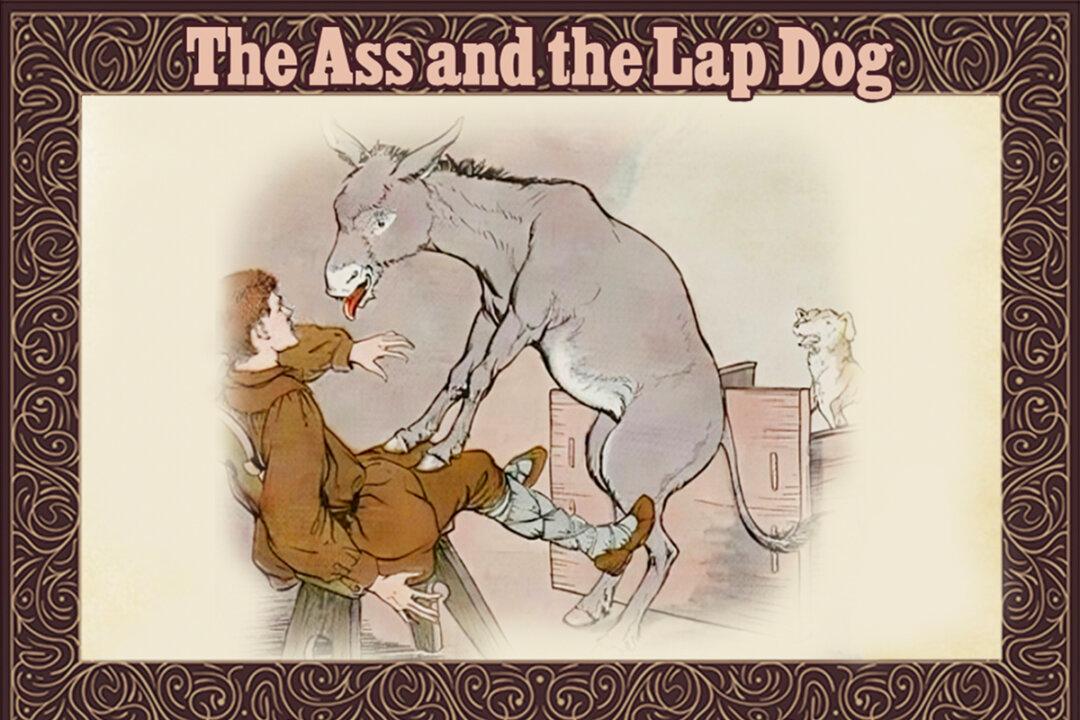There was once an Ass whose Master also owned a Lap Dog. This Dog was a favorite and received many a pat and kind word from his Master, as well as choice bits from his plate. Every day the Dog would run to meet the Master, frisking playfully about and leaping up to lick his hands and face.
All this the Ass saw with much discontent. Though he was well fed, he had much work to do; besides, the Master hardly ever took any notice of him.






